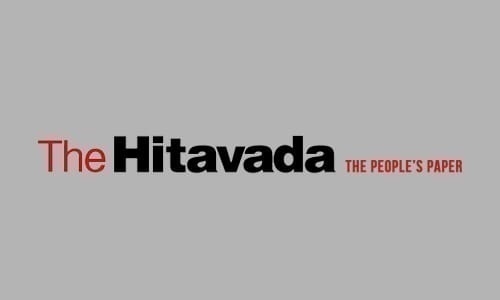A Welcome Continuity
| Date :02-Jul-2024 |

THE results of the recent Parliamentary election do have the effect of strengthening India’s democratic state. They made it possible for a stable coalition Government to return to power -- in the absence of any single party securing a majority. India badly needed to have that in the current geopolitical environment. With stability is linked to the factor of continuity that would enable people to further evaluate Prime Minister Narendra Modi’s Government’s performance over its past two terms while providing also an opportunity to Prime Minister Modi of making course corrections if any.
Above all, the polls validate the robust character of this country’s electoral democracy built on ‘one man one vote’ and bring out how an active opposition -- its strength varying from state to state -- helps the citizens in exercising their choices based on the relative appeal of the ruling dispensation compared to those politically opposed to it.
In a vast country of diverse socio-political equations like India, it is not surprising that the degree of opposition unity reached in states like Uttar Pradesh and Maharashtra this time did impact the prospect of the ruling party -- which had otherwise gone on to acquire new grounds in States like Orissa, Telangana and Andhra Pradesh.
State-based parties with caste, communal and regional appeals have been a traditional feature of the Indian political scene which makes it important that the country should have all-India parties working in healthy competition at the national level.
Over the decades after Independence, the Congress once ruled the nation suffered a decline but fortunately, the BJP rapidly rose to become a challenger to the Congress on the strength of its political merit and nationalist appeal.
The recent Parliamentary election saw a natural interplay of the two largest national parties and their state-level allies -- its outcome is to be welcomed in terms of the advance of democracy that it represents in India.
The BJP is doing well to go into a systematic examination of what caused its tally to fall short of its expectations in certain States.
It is only appropriate politically that the Prime Minister should choose to draw strength from the victory of the National Democratic Alliance and express his determination to carry forward the national agenda of governance envisaged by the BJP.
It is natural for him to continue with the same Cabinet Committee on Security (CCS) as was in existence before and accommodate the allies in the Ministry honourably but without giving in to any pressure from them.
India needs to be governed with strong hands with a sense of accountability and effective execution of policies flowing top-down and the Prime Minister promises to do that -- his credibility concerning governance is intact in the eyes of the people and this is his main asset.
His contribution to pushing India up in the comity of nations as the acknowledged voice of reason on issues of global conflicts and also on matters of advancement of humanity is well established and so is his policy of zero tolerance towards terrorism and forces threatening national unity and internal security.
These are among the major paradigms of successful governance in India and the Prime Minister would be right in pursuing this path undeterred by any other political factors. For him, the legacy of successfully safeguarding national interests during his rule is all that should matter to him at this stage. He is an astute political combatant, is cognisant of the weaknesses in the Opposition camp and is likely to keep NDA rule going as long as this was possible. The first hurdle faced by PM Modi’s Government in the election of the Speaker of the Lok Sabha has been crossed over successfully as amid a noisy backdrop of contest, Om Birla, the candidate of BJP was elected by a voice vote -- the strength of NDA demonstratively holding out against the opposition.
Some opposition elements have even endorsed the idea that this mandate should be considered optional.
Moreover, Western lobbies hostile to India do not take kindly to a strong nationalistic country asserting its independent stand on issues of war and peace and trying to be self-dependent in the spheres of development and defence.
Prime Minister Modi’s visit to the G7 summit in Rome, on the invitation of Italian Prime Minister Giorgia Meloni in the middle of Cabinet formation, showed the importance he attached to India’s image abroad and could not therefore be faulted. His first policy announcements at home indicated that his political will in running the country was intact.
It would do India no good if Prime Minister Modi was looked upon as a leader presiding over a weak Government. In the months ahead political campaigns in the country are likely to get intensified as the Opposition continues to find fault with Prime Minister Modi’s Government on one count or the other. The appointment of Rahul Gandhi as the Leader of the Opposition will further add to this trend. The external threats to internal security can also mount largely because of the covert operations of Pakistan and China working in concert against India.
Jammu and Kashmir, Punjab and the North East apart, it is the communal front that would require a close vigil.
The challenge of safeguarding internal security will likely outweigh the task of bringing about economic development in the times ahead and Prime Minister Modi’s Government will be tested more for its ability to maintain peace at home rather than for advancing the cause of India abroad.